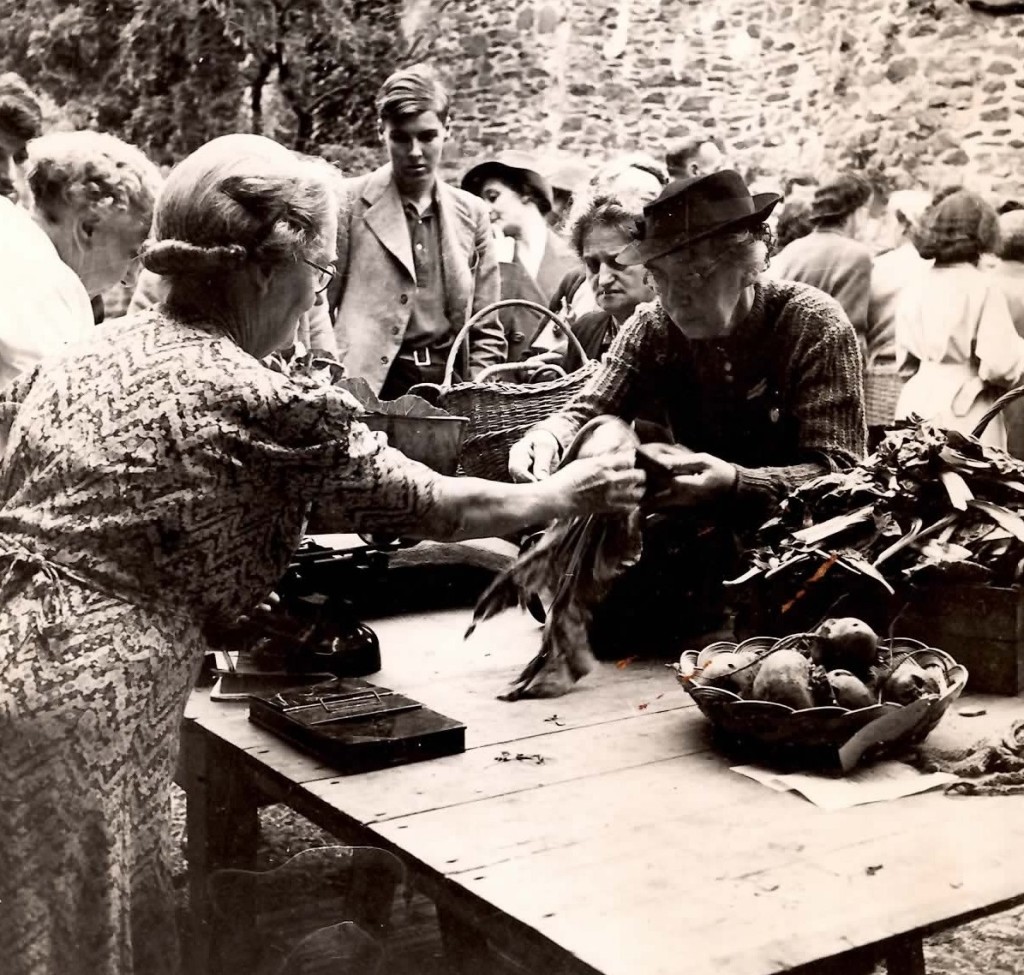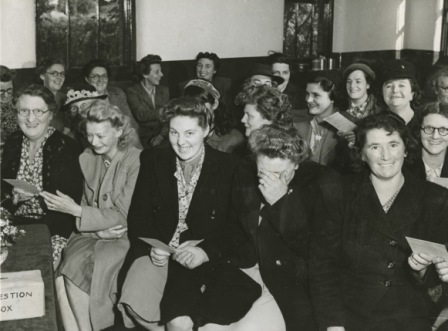It is a week since my last blog about Home Fires and things have moved on dramatically. Since that phone call at 12:08 on Wednesday 11 May 2016 telling me that ITV had decided against commissioning a third series I have witnessed more activity on social media in a fortnight than I have ever experienced before. The energy and enthusiasm of fans for Home Fires is matched only by their frustration, sadness and at times barely concealed fury at ITV’s decision to drop the show after just two series. That it ended on a spectacular cliff-hanger has been one of the biggest points of discussion but the other is more subtle and interesting. Why cut a strong, women-led drama which had such a great following? Especially when the networks are all trying to prove how egalitarian they are with a view to showing women on television.
When I first talked to script writer, Simon Block, about why writing about the WI in wartime appealed to him, he said: ‘It offered a fantastic opportunity to write about a lot of women in their own right, and not merely as adjuncts to – or victims of -various men, which is so often how women are portrayed in television drama.’
He went on to describe how he was impressed by the support and friendship the Women’s Institute offered to “often isolated women who needed the companionship of other women like never before – even if for a few hours a month. The book opened my eyes to the great extent WI women mobilised to make such a huge contribution, generating a fantastic spirit of ‘community’. The fact that this was largely unknown (as is often the case with women’s history) left me feeling it was a significant episode in British culture that should be more widely recognised.”
That resonated with the audience who have been writing movingly about how much they love the characters and how they feel connection with the drama. One lady posted on the Jambusters public Facebook page (so it can be verified that I’m not making it up) “I always admired the women who live and struggled through World War Two, I think because my 81 year old mother has memories of it. Jambusters added to my knowledge and Home Fires brought it all alive for me.”
Mark Umbers, who plays Wing Commander Nick Lucas in the drama, wrote a beautiful open letter in which he said: ‘Home Fires assembled a large ensemble cast but told its stories from the female perspective — in a way that didn’t diminish its male characters. What it proved beyond doubt was that a female-driven narrative, across a broad range of characters and ages, could routinely draw in consolidated audiences of around six million in the UK alone — despite a negligible publicity.’
He is right of course and what a viewer pointed out is that the message coming across is that women-led dramas scare TV executives who can’t believe they can be popular. When Home Fires first came out in Britain it got poor reviews from TV critics who thought it was clever to poke fun at what they thought was a weak and whimsical drama. How wrong they were. My friend Andy said: ‘I think some critics would only be happy if a Panzer division drove down the middle of Great Paxford High Street followed by storm troopers raping and pillaging.’ But actually the portrayal of women’s lives behind the scenes of the most devastating conflict in history did interest and captivate people. Six million week in week out for all twelve episodes across two series. And the drama ‘won’ the 9pm slot 11 times out of 12, meaning it got a higher percentage of the viewers than the BBC offering on the other side.

‘One does have to ask if sexism was involved. Would the same decision have been made if it was a men’s organisation that was at the centre of the drama?’ asked someone on Facebook. I can’t provide her with a definitive answer but I wonder whether the decision to cancel the show was taken by men in suits who didn’t understand that a drama about ordinary women’s lives could catch on. It wasn’t sexy enough and there was a lack of death on screen perhaps. Maybe Andy was right and they would have been happier with tanks rumbling down the high street and Hugo Boss uniform-clad German officers.
What I do not understand is how ITV so grossly underestimated the Home Fires audience. The drama touched people at a very deep level and made an impact on men and women alike, people who are now invested in the drama and at a loss as to why it has been pulled. That it has produced such a violent and wonderful outpouring of emotion is heartwarming for the writers, producers and wonderful cast and crew who so loved working on the show.

As Simon Block said in a Radio Times interview on 13th May: ‘What people like me forget at our peril is that without the audience a show like Home Fires doesn’t really exist, except on a shelf somewhere in an unlit room. It only truly bursts into life when it ignites an audience’s imagination, as they develop a relationship with the characters – empathising with some, identifying with others, reviling Bob! In that sense it’s the audience’s show as much as ours, and that’s what I think they want to voice at the moment. And I support that 100%. For a writer who stares out of the window for 90% of his working life the reaction has been very affirming.’
The protest must be getting under ITV’s skin. According to the press there are hundreds of pots of Jam flying like Harry Potter owls into the press office at ITV. The petition is ever growing and both Facebook and Twitter are alive. WI and other audience members are displaying posters, writing letters and generally protesting in a very British and Home Fires-like way. I shall continue to fight for Home Fires because, like Simon, I believe the show belongs to everyone who is invested in it emotionally as well as financially. Let’s continue to fight to #savehomefires.



